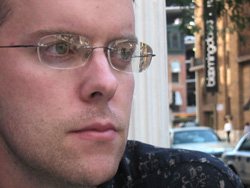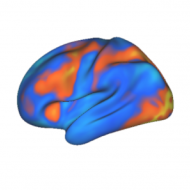About the title: Neurevolution
Is it NeurEvolution? Perhaps NeuRevolution? The “Neur” is, of course, in reference to neuron, the basic functional cellular unit of the brain which is thought to be essential for mental function. We remain agnostic as to whether the title refers to either the evolution or revolution of neuroscience, since both denote change. The purpose of this blog is chronicling the great changes taking place in neuroscience due to the profound issues raised by cognitive science. This process is a revolution in that it is causing great change in a short period of time, and it is evolution in the sense that it is an emergent self-organizing process that each of us can only contribute to, not control.
About the blog authors
When this blog was launched the authors were both in the Ph.D. program in Neuroscience at the University of Pittsburgh (CNUP). They both carry out research at the intersection of neuroscience and psychology (i.e. cognitive neuroscience). The authors were also members of the Center for the Neural Basis of Cognition (the CNBC, a joint program at Carnegie-Mellon University and the University of Pittsburgh).

Michael W. Cole is an assistant professor at Rutgers University-Newark. He was a post-doctoral researcher at Washington University in St. Louis until 2014. He graduated from the University of Pittsburgh in 2009 with a PhD. in Neuroscience, and from UC Berkeley in 2003 with a B.A. degree in Cognitive Science. His research mainly involves the use of functional imaging to measure brain activity in humans during higher level cognitive tasks. He is interested in advanced statistical techniques allowing for a greater understanding of the neural basis of cognition. Particular issues of interest include the neural basis of rapid task learning, the neural basis of working memory and attention, the evolution of complex cognition in humans, and the emergence of complex cognition from network dynamics.
Patryk Laurent is Director of Engineering (Artificial Intelligence) at LeEco in San Diego, CA. He graduated with a B.A. in the Cognitive Sciences from the University of Virginia in 2001, and earned his doctorate in Neuroscience at the University of Pittsburgh in 2009. After several years of postdoctoral research at the Johns Hopkins University, he spent four years at Brain Corporation developing biologically-inspired artificial brains for robots. His work focuses on applying learning algorithms and artificial neural networks to continuous and dynamic data (e.g., speech, video, and audio). Aside from computational techniques, he has also used behavioral, eye tracking, and fMRI methodologies.

